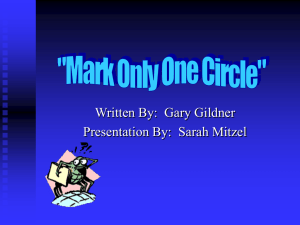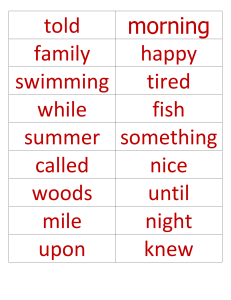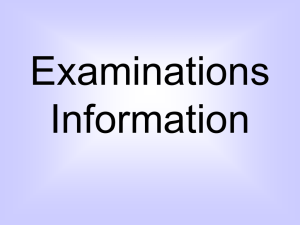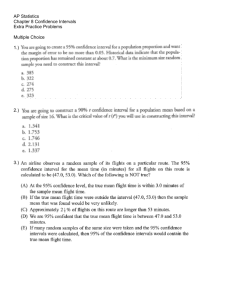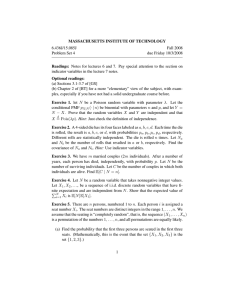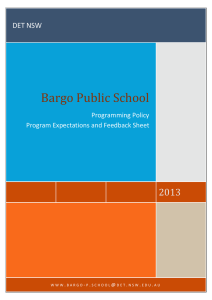Guide to Studying - St Benildus College
advertisement
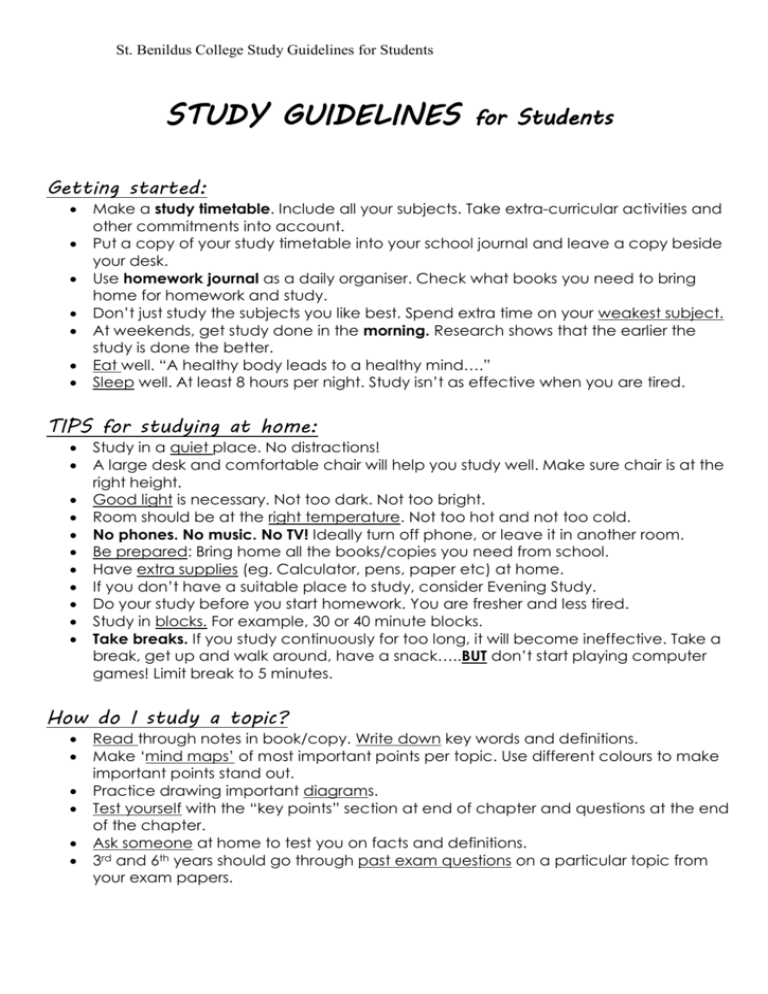
St. Benildus College Study Guidelines for Students STUDY GUIDELINES for Students Getting started: Make a study timetable. Include all your subjects. Take extra-curricular activities and other commitments into account. Put a copy of your study timetable into your school journal and leave a copy beside your desk. Use homework journal as a daily organiser. Check what books you need to bring home for homework and study. Don’t just study the subjects you like best. Spend extra time on your weakest subject. At weekends, get study done in the morning. Research shows that the earlier the study is done the better. Eat well. “A healthy body leads to a healthy mind….” Sleep well. At least 8 hours per night. Study isn’t as effective when you are tired. TIPS for studying at home: Study in a quiet place. No distractions! A large desk and comfortable chair will help you study well. Make sure chair is at the right height. Good light is necessary. Not too dark. Not too bright. Room should be at the right temperature. Not too hot and not too cold. No phones. No music. No TV! Ideally turn off phone, or leave it in another room. Be prepared: Bring home all the books/copies you need from school. Have extra supplies (eg. Calculator, pens, paper etc) at home. If you don’t have a suitable place to study, consider Evening Study. Do your study before you start homework. You are fresher and less tired. Study in blocks. For example, 30 or 40 minute blocks. Take breaks. If you study continuously for too long, it will become ineffective. Take a break, get up and walk around, have a snack…..BUT don’t start playing computer games! Limit break to 5 minutes. How do I study a topic? Read through notes in book/copy. Write down key words and definitions. Make ‘mind maps’ of most important points per topic. Use different colours to make important points stand out. Practice drawing important diagrams. Test yourself with the “key points” section at end of chapter and questions at the end of the chapter. Ask someone at home to test you on facts and definitions. 3rd and 6th years should go through past exam questions on a particular topic from your exam papers. St. Benildus College Study Guidelines for Students Set specific targets. (For example, instead of saying “I’m going to study science for 30 minutes”, it would be better to say “I’m going to learn the functions of the blood and all of the parts of the heart”) Record yourself (eg. Reciting a poem or quotations from a play) and listen back. Study each topic very well at first. Then, over following weeks, go back over it 2 or 3 times. This makes you more likely to retain the information in the long term. Take a photo of study notes and look over them on Luas on way to school etc. Avoid Cramming! (ie. Trying to study everything the night before an exam). It doesn’t work. Study each topic as if you have an exam on it tomorrow. This pressurises you into remembering the information as best you can. Study SMART!! S = Specific. Have specific targets. For example: I will learn this Irish poem well. M= Measureable. Test yourself at end. Tick off from a checklist what you have done. A= Active. Have different action-related techniques (make notes or mindmaps) R= Realistic. Set achieveable goals. Don’t expect to cover the whole course. T= Time. Put a time limit on how long a task should take you. - THE FORGETTING CURVE After learning a topic for the first time in class, you quickly forget it. The 1st time you study it, you remember more of it. The 2nd time you study it, you remember more of it again, and for longer. The 3rd time you study it, you remember more again and for a much longer time. SO……. Study a topic well, but remember to look back over it frequently. This way you will hang on to it for longer! MIND MAPS: An ideal way of looking over entire chapters or large sections of work. NOTE-TAKING: By writing down information, you are more likely to remember it, compared to just reading it. Making your own notes allows you to reduce the content and learn it in your own words. Summarise. Reduce the amount of information! Focus on key facts. Good notes are short, clear, concise and in your own words. Keep them neat and readable. Use mind-maps, acronyms (eg. FATDAD…for the counties in Ulster), rhymes and linking. Use different colour pens. Underline key words. Notetaking is a very effective form of study as it forces you to understand what you are studying. St. Benildus College Study Guidelines for Students
